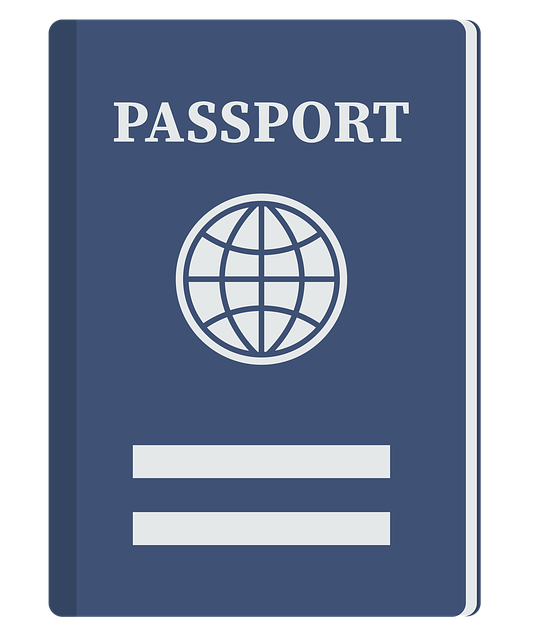In today's global marketplace, businesses needing intellectual property (IP) protection or expansion abroad rely on precise UK Intellectual Property Documents translation services. These specialized services ensure accurate legal translations, preserving nuances and facilitating IP enforcement across jurisdictions. Qualified translators with IP law expertise navigate complex terminology and jurisdictional differences, providing critical support for compliance and avoiding potential risks like invalid contracts. Engaging reputable providers following ISO 17100 standards guarantees high-quality translations that accurately represent UK IP documents in foreign languages.
In today’s globalized landscape, businesses operating within the UK or aiming international expansion must navigate complex intellectual property (IP) laws. Ensuring compliance with translated IP documents is paramount for legal use abroad. This comprehensive guide delves into the intricacies of UK intellectual property regulations and their global reach. We explore the significance of accurate translation, common challenges, best practices, choosing reliable translation services, post-translation review, and successful case studies. Discover expert insights on navigating these crucial steps to protect your IP assets effectively.
- Understanding UK Intellectual Property Laws and Their Global Reach
- The Significance of Accurate Translation for Legal Documents
- Common Challenges in Translating IP Documents
- Best Practices for Ensuring Translation Quality and Compliance
- Choosing the Right Translation Service Provider for IP Documentation
- Post-Translation Review: Verifying Accuracy and Legal Adequacy
- Case Studies: Successful Translations in Action
Understanding UK Intellectual Property Laws and Their Global Reach

In the globalised world, businesses often operate across borders, making it crucial to understand and adhere to international intellectual property (IP) laws. The UK, as a key player in the global market, has established a robust legal framework for IP protection. These laws encompass trademarks, copyrights, patents, and design rights, ensuring that creators and inventors have their rights recognised and safeguarded. When dealing with translated documents, such as contracts or legal agreements, it’s essential to ensure accuracy in translation to maintain compliance. UK Intellectual Property Documents translation services play a vital role here, guaranteeing that every nuance of the original text is preserved, enabling businesses to navigate the complexities of international law with confidence.
The reach of UK IP laws extends beyond its borders, as international treaties and agreements facilitate their application worldwide. This global perspective is especially relevant for companies seeking to expand or protect their brands and innovations internationally. Accurate translations ensure that these legal protections are effectively enforced, protecting intellectual property rights holders from potential infringements across different jurisdictions. Therefore, when engaging in global business ventures, relying on professional translation services for UK Intellectual Property Documents becomes a strategic necessity.
The Significance of Accurate Translation for Legal Documents

When it comes to legal matters, especially involving intellectual property (IP) in the UK, accurate and professional translation is paramount. Legal documents are complex and often require a deep understanding of both the law and language nuances. A single mistranslation can lead to severe consequences, including misrepresented evidence, invalid contracts, or even copyright infringement.
UK Intellectual Property Documents translation services play a crucial role in ensuring these legal documents are handled with precision. These services employ qualified translators who not only speak native-level English but also have expertise in IP law. They understand the technical terms and legal terminology specific to intellectual property cases, guaranteeing that every detail is conveyed accurately across languages.
Common Challenges in Translating IP Documents

Translating UK intellectual property (IP) documents requires meticulous attention to detail, as even minor errors can have significant legal implications. Common challenges include understanding complex terminology and nuanced concepts specific to IP law, ensuring accuracy across different languages, and preserving the original intent and value of the documents.
The process is further complicated by the fact that IP laws vary across jurisdictions, necessitating not just linguistic proficiency but also a deep understanding of foreign legal frameworks. Professional translation services specializing in UK IP documents are crucial for navigating these challenges effectively. They employ experts who are well-versed in both the source and target languages, as well as IP law, to deliver precise and legally sound translations that meet stringent international standards.
Best Practices for Ensuring Translation Quality and Compliance

When dealing with UK Intellectual Property (IP) documents, ensuring accurate and compliant translations is paramount to maintaining legal integrity. Engaging professional translation services specializing in IP documentation is a best practice that guarantees precision and expertise. These services employ linguists well-versed in both the source and target languages, minimizing errors and cultural misinterpretations.
Additionally, implementing quality assurance measures like proofreading by native speakers further enhances accuracy. Using consistent terminology and maintaining legal jargon’s integrity throughout the translation process is essential. Regular reviews and comparisons with the original UK IP documents reinforce compliance, ensuring that all legal nuances are preserved in the translated version.
Choosing the Right Translation Service Provider for IP Documentation

When it comes to translating UK Intellectual Property (IP) documents for legal use, selecting the right translation service provider is paramount. It’s not merely about finding someone who can translate words from one language to another; it involves ensuring accuracy, consistency, and an understanding of the specific terminology and nuances within IP law. Look for providers with expertise in legal and technical translation, preferably those with experience handling similar IP documents.
Reputation and quality assurance are key factors. Check if the provider follows industry standards such as ISO 17100 for translation services. Client testimonials and case studies can also give you insight into their capabilities and the level of precision they maintain. This careful choice ensures that your translated UK IP documents not only meet legal requirements but also effectively communicate your intellectual property rights in a foreign jurisdiction.
Post-Translation Review: Verifying Accuracy and Legal Adequacy

After a document has been translated, a critical step in ensuring its suitability for legal use is conducting a thorough post-translation review. This process involves meticulous verification to check for both factual accuracy and legal adequacy. Skilled translators or legal professionals specialized in UK Intellectual Property (IP) law should perform this review to ensure the translated documents accurately convey the original meaning and comply with relevant legal standards.
The post-translation review should cover several aspects, including checking for any grammatical errors, inconsistencies in terminology, or discrepancies between the source and target texts. It’s essential also to assess whether the document’s legal language is appropriate for its intended purpose, ensuring it meets the specific requirements of UK IP law. This step is vital to minimize risks associated with inaccurate or inadequate translations, which could have significant implications in legal proceedings.
Case Studies: Successful Translations in Action

When it comes to ensuring compliance with translated IP documents, case studies offer valuable insights into successful implementations. Many UK-based companies have benefited from professional intellectual property (IP) documents translation services, navigating complex legal landscapes with precision. These translations have involved everything from patent applications and trademark registrations to licensing agreements and research papers, each requiring a deep understanding of both the source and target languages.
For instance, a leading pharmaceutical company successfully navigated international expansion by having their extensive IP portfolio translated into multiple languages. This enabled them to protect their innovations across various markets, avoiding potential legal pitfalls and ensuring consistent brand recognition. Similarly, tech startups have leveraged UK intellectual property documents translation services to secure funding from global investors, showcasing the importance of clear, accurate communication in the legal domain.
When dealing with UK Intellectual Property (IP) documents, accurate translation is paramount for global legal use. As these documents navigate international borders, ensuring compliance with local laws and regulatory frameworks becomes essential. By adopting best practices, choosing reputable translation service providers, and conducting thorough post-translation reviews, organizations can mitigate risks and harness the power of professional IP document translation services. This article has highlighted the critical aspects of navigating this complex landscape, offering a roadmap for success in managing and utilizing translated UK IP documents effectively.



